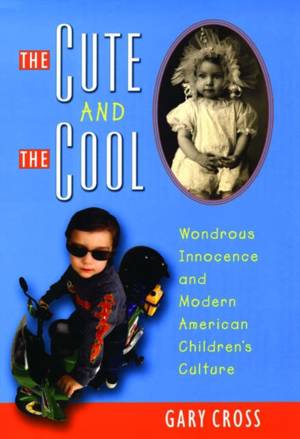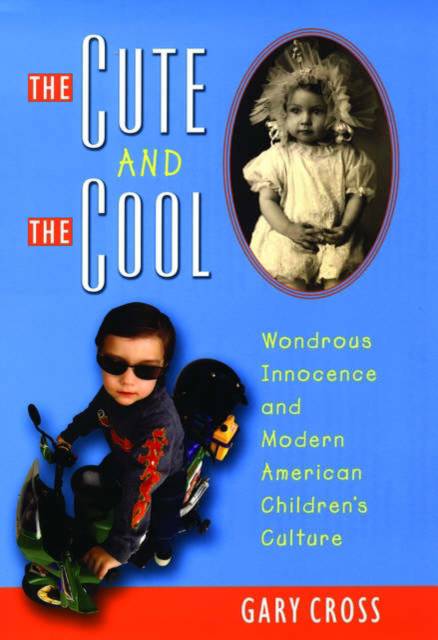
- Afhalen na 1 uur in een winkel met voorraad
- Gratis thuislevering in België vanaf € 30
- Ruim aanbod met 7 miljoen producten
- Afhalen na 1 uur in een winkel met voorraad
- Gratis thuislevering in België vanaf € 30
- Ruim aanbod met 7 miljoen producten
Zoeken
The Cute and the Cool
Wondrous Innocence and Modern American Children's Culture
Gary Cross
Hardcover | Engels
€ 149,95
+ 299 punten
Omschrijving
The twentieth century was, by any reckoning, the age of the child in America. Today, we pay homage at the altar of childhood, heaping endless goods on the young, reveling in memories of a more innocent time, and finding solace in the softly backlit memories of our earliest years. We are, the proclamation goes, just big kids at heart. And, accordingly, we delight in prolonging and inflating the childhood experiences of our offspring. In images of the naughty but nice Buster Brown and the coquettish but sweet Shirley Temple, Americans at mid-century offered up a fantastic world of treats, toys, and stories, creating a new image of the child as "cute." Holidays such as Christmas and Halloween became blockbuster affairs, vehicles to fuel the bedazzled and wondrous innocence of the adorable child. All this, Gary Cross illustrates, reflected the preoccupations of a more gentle and affluent culture, but it also served to liberate adults from their rational and often tedious worlds of work and responsibility. But trouble soon entered paradise. The "cute" turned into "cool" as children, following their parental example, embraced the gift of fantasy and unrestrained desire to rebel against the saccharine excesses of wondrous innocence in deliberate pursuit of the anti-cute. Movies, comic books, and video games beckoned to children with the allures of an often violent, sexualized, and increasingly harsh worldview. Unwitting and resistant accomplices to this commercial transformation of childhood, adults sought-over and over again, in repeated and predictable cycles-to rein in these threats in a largely futile jeremiad to preserve the old order. Thus, the cute child-deliberately manufactured and cultivated--has ironically fostered a profoundly troubled ambivalence toward youth and child rearing today. Expertly weaving his way through the cultural artifacts, commercial currents, and parenting anxieties of the previous century, Gary Cross offers a vibrant and entirely fresh portrait of the forces that have defined American childhood.
Specificaties
Betrokkenen
- Auteur(s):
- Uitgeverij:
Inhoud
- Aantal bladzijden:
- 272
- Taal:
- Engels
Eigenschappen
- Productcode (EAN):
- 9780195156669
- Verschijningsdatum:
- 1/04/2004
- Uitvoering:
- Hardcover
- Formaat:
- Genaaid
- Afmetingen:
- 155 mm x 240 mm
- Gewicht:
- 494 g

Alleen bij Standaard Boekhandel
+ 299 punten op je klantenkaart van Standaard Boekhandel
Beoordelingen
We publiceren alleen reviews die voldoen aan de voorwaarden voor reviews. Bekijk onze voorwaarden voor reviews.











